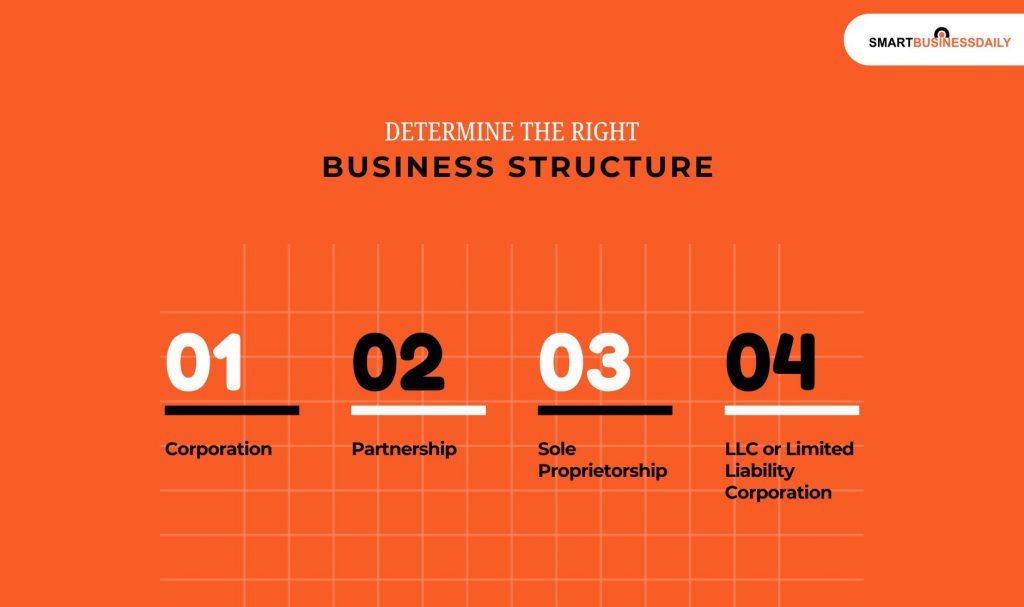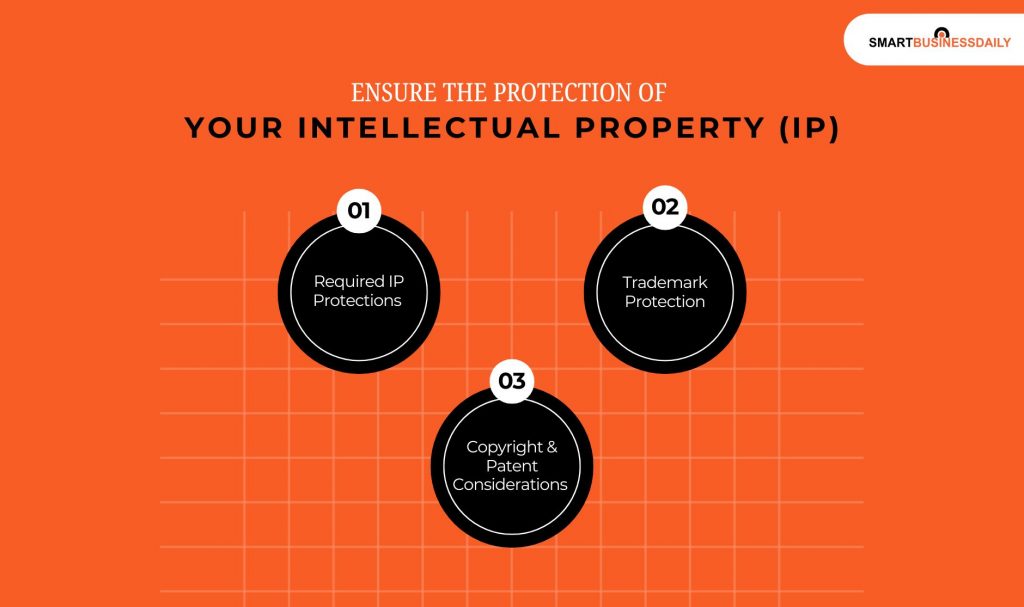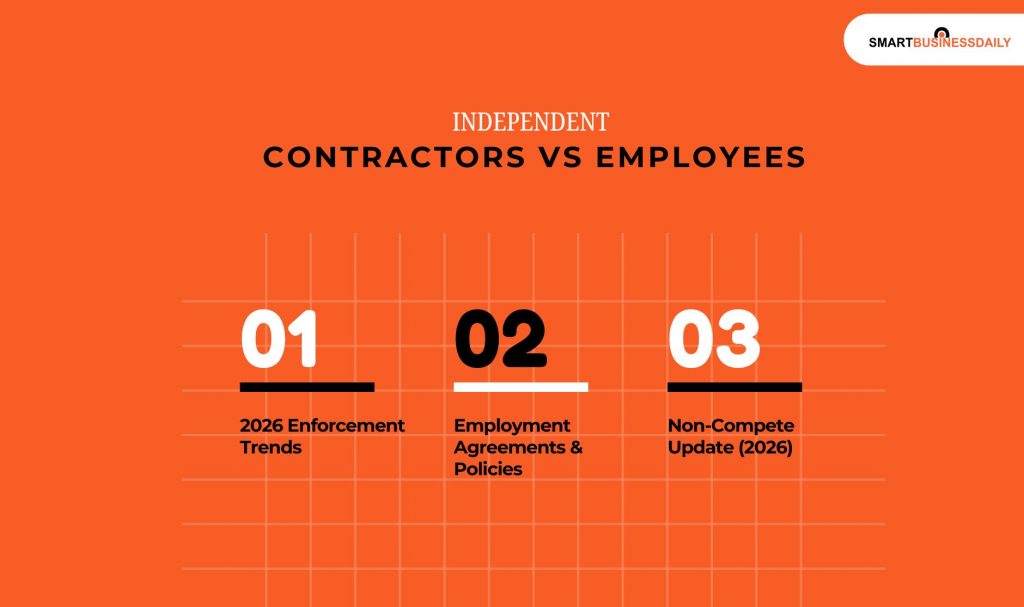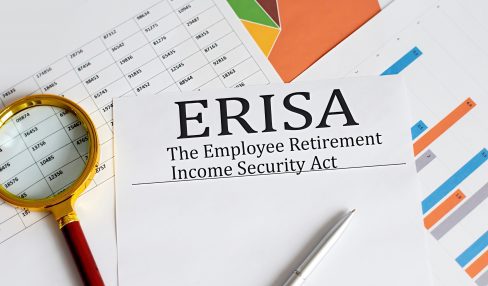What Is The Legal Checklist For Startups In The USA? Know The Requirements
5 Mins Read
Published on: 27 September 2025
Last Updated on: 27 January 2026

- What Is The Legal Checklist For Startups In The USA?
- 1. Determine The Right Business Structure
- 2. Register The Name Of Your Business
- 1. Business Banking & Financial Separation
- 2. Federal, State & Local Tax Compliance
- 3. Get The Essential Permits And Licenses
- 4. Make A Draft Of Critical Business Documents
- 5. Ensure The Protection Of Your Intellectual Property (IP)
- Required IP Protections
- Trademark Protection (Brand Survival)
- Copyright & Patent Considerations
- 6. Ensure Compliance With The Employment Laws
- Hiring Employees Legally
- Wage & Hour Laws
- 7. Independent Contractors vs Employees (High-Risk Area)
- 2026 Enforcement Trends
- Employment Agreements & Policies
- Non-Compete Update (2026)
- Have Terms And Conditions And A Privacy Policy
- Get Insurance
- Legal Checklist For Startups: A Few More Things To Keep In Mind
- Legal Checklist For Startups: Frequently Asked Questions (FAQs)
The startup ecosystem of the USA is growing massively. It’s not just a statement, and even the Global Startup Ecosystem Index 2025, published on StartUpBlink, says that the United States holds the number 1 position in the world.
StartUpBlink also shares the following details about the startup scenario in the USA.
- The number of startups in the USA is 71,212.
- Thus, 90% of the startups in North America are present in the USA.
- Furthermore, for every 100,000 people in the USA, there are 22 startups.
- The annual growth rate of the startup ecosystem in the USA from April 2024 to April 2025 was 18.2%.
- Six hundred seventeen startups among these companies are Unicorns, with a valuation of more $1 billion.
All the data shows that it is the best time to have a startup business in the USA. However, the legal checklist for startups in the USA is quite extensive, and in this guide, we will discuss those parameters in detail.
What Is The Legal Checklist For Startups In The USA?

The legal checklist for startups in the USA works as the rock-solid foundation. Initially, it becomes critical in earning the confidence of the investors, and it functions as a safety net for the business.
Moreover, if you maintain compliance with the legal checklist, there will be smooth operations and better chances of long-term success.
Here is your step-by-step checklist.
1. Determine The Right Business Structure

The liabilities of your business and tax structure depend on the type of business structure you choose.
- Corporation
- Required by most venture capital firms
- Allows stock options, SAFEs, and equity grants
- Easier acquisition and IPO pathway
- Partnership
- Shared ownership
- Complex liability rules
- Difficult to scale or fundraise
- Sole Proprietorship
- No legal separation
- Founder bears full personal liability
- Rarely suitable for startups
- LLC or Limited Liability Corporation
- Strong liability protection
- Pass-through taxation
- Flexible management
- Limited VC appeal
These are some popular business structures for a startup business. However, if you want the operations to be very flexible, you will have to choose the LLC structure.
2. Register The Name Of Your Business
Your business will not have any identity if it does not have a name. So, you will have to first choose a name for your business and then get it registered with the right authorities.
1. Business Banking & Financial Separation
Legal separation is mandatory to:
- Maintain liability protection
- Pass audits
- Raise funding
Requirements:
- EIN
- Formation documents
- Corporate resolutions
2. Federal, State & Local Tax Compliance
Federal Taxes
- Corporate income tax
- Payroll tax
- Self-employment tax (founders)
State Taxes
- Franchise taxes
- Income taxes
- Sales & use taxes
2026 Update: Economic Nexus Laws
You may owe sales tax even without a physical presence.
Failure to comply can trigger:
- Back taxes
- Interest
- Penalties
- Business license revocation
3. Get The Essential Permits And Licenses
Irrespective of the industry you operate in, you will need licenses and permits. Furthermore, the licenses you need will depend on your location.
Here are examples of some common types of licenses required for different businesses.
| Types of Business | License Required |
|---|---|
| Food Businesses | Health Permits |
| Businesses Operating from Specific Physical Locations | Zoning Permits |
| Consulting Services | Professional Licenses |
4. Make A Draft Of Critical Business Documents
Drafting the essential legal documents is crucial for any startup. Without proper documentation, your business will not have credibility. Furthermore, there will be misunderstandings and disputes.
Have a look at the table below for a detailed understanding of the types of documents you will need for your startup business.
| Employment Contracts | Clear definition of the job roles Salaries of the employee Employee policies and benefits |
| Founder’s Agreement | Distribution of Equity among Founders Roles and Responsibilities |
| NDA or Non-Disclosure Agreement | Safety net for confidential information and your business ideas. |
5. Ensure The Protection Of Your Intellectual Property (IP)

If IP is not legally assigned to the company, the company does not own it.
Required IP Protections
- IP assignment from founders
- IP assignment from employees
- IP assignment from contractors
This prevents:
- Founder disputes
- Contractor ownership claims
- Acquisition deal failures
Trademark Protection (Brand Survival)
Register trademarks for:
- Company name
- Product names
- Logos
- Slogans
Benefits:
- Nationwide protection
- Legal enforcement rights
- Brand value increase
In 2026, trademark disputes are one of the most common startup lawsuits.
Copyright & Patent Considerations
Copyrights
Protect:
- Software code
- Websites
- Content
- Designs
Automatically granted, but registration strengthens enforcement.
Patents
- Utility patents (processes, systems)
- Design patents (appearance)
- Software patents (limited, case-specific)
Patents are optional, but crucial in deep tech, AI, and hardware.
6. Ensure Compliance With The Employment Laws
You may have in-office employees, or there can be employees working remotely for you. You have to ensure that the working conditions in your office are safe, there is no discrimination, and all your employees are receiving fair wages.
Hiring Employees Legally
Mandatory requirements:
- Form I-9 verification
- W-4 forms
- State new hire reporting
- Workers’ compensation insurance
Wage & Hour Laws
- Minimum wage compliance
- Overtime pay rules
- Meal & rest breaks (state-specific)
7. Independent Contractors vs Employees (High-Risk Area)

Misclassification is one of the most penalized startup mistakes.
2026 Enforcement Trends
- Stricter Department of Labor audits
- Gig economy regulations expanding
- Retroactive penalties increasing
Always:
- Use written contractor agreements
- Ensure contractors meet legal criteria
- Avoid treating contractors like employees
Employment Agreements & Policies
Essential documents:
- Offer letters
- Employment contracts
- Confidentiality agreements
- Invention assignment agreements
Non-Compete Update (2026)
- Banned or restricted in many states
- Limited enforceability
- Non-solicitation clauses preferred
Have Terms And Conditions And A Privacy Policy
Of course, you will have a website and a digital presence. So, as a legal checklist, you must have terms and conditions policies ready and updated.
Get Insurance
From the initial days to years of operation, your business will have to face many unprecedented challenges. Insurance is the shield that will protect you from these perils.
The most important types of insurance are:
- Worker’s Compensation
- Product Liability Insurance
- General Liability Insurance
Legal Checklist For Startups: A Few More Things To Keep In Mind

Taxation and adherence to legal checklist are something that need professional assistance. You can have an in-house team or work with a consultant according to your budget and requirements.
However, when you start a startup business, you also need to stay updated about the laws and changing compliance regulations.
Legal Checklist For Startups: Frequently Asked Questions (FAQs)
Here are the frequently asked questions and answers about the legal checklist for startups.
Legal principles, regulations and the law framework are three main components of the legal environment of a startup.
Furthermore, the intellectual property laws, workers’ compensation, and tax structure are some other components of the legal environment.
According to the International Entrepreneurial Rule, you have to fulfil the following criteria to start and grow your business in the USA on a temporary or payroll basis.
You have started the startup within five years of your application.
It has a funding of a minimum $250,000 from recognized US investors or you can show a government grant of $100,000.
As an applicant, you need to have at least 10% ownership in the startup business
If you are meeting these criteria partially, you have to show the rapid growth potential of the startup.
People, Product and Process are the three Ps of a startup business. Irrespective of the service or product your business offers, these three Ps will be the foundation stones of your business.
In other words, every operation or movement in the organization will depend on these three Ps.



















Comments Are Closed For This Article